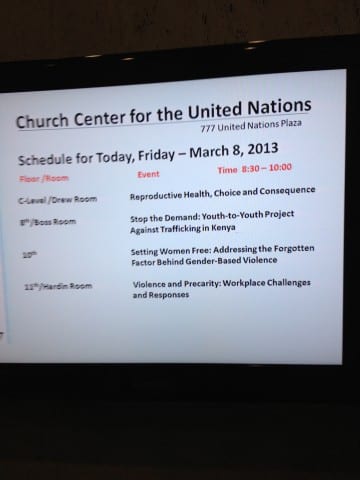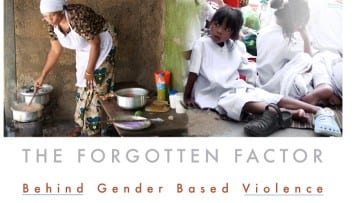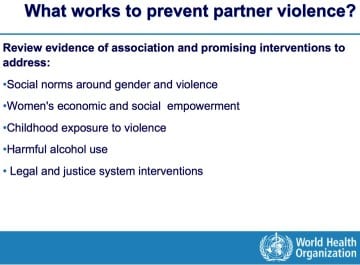One week ago around this time, I was very excited about the developments at CSW57 and about our coming parallel event on “The forgotten factor behind Gender Based Violence”. The CSW57 was huge. There were governmental sessions going on, many side events (organized by NGOs with support of governments) and more than 300 parallel events (organized by NGOs) in the programme. One of them ours.
We were participating mostly in the governmental sessions to listen to what the world’s decision-makers have to say about eliminating and preventing violence against women and girls. Hearing some of the countries speak, we felt hope. The Scandinavian countries were very clear in their stance that culture and traditions are not and cannot be an excuse for violence against women and girls. There is no way that a cultural custom can open the door for acceptance of or an encouragement to a crime which violence against women and girls clearly is.
Apparently such an obvious statement for some of us, is impossible to be approved by others. Russia, the Vatikan and Iran are the countries that form and “Unholy alliance” and distanced themselves from CSW57 and were not willing to agree that culture simply can not excuse or support acts of violence against half of the word’s population.
I understood how difficult it is to look at and question one’s own culture, only when I realized that women themselves had difficulties to say that the culture they live in is violating their basic human rights and should be unacceptable. Our customs and traditions and beliefs are so powerful and so imprinted in our minds that we prefer to accept them and feel safe with the predictability brought by every culture instead of questioning centuries’ old behavior and changing it but facing insecurity of not knowing what will come along.
Another reason of not going against a culture is our realization that it is something that we have been part of, perpetuating on a smaller or a bigger scale. Admitting that the culture is dysfunctional, we actually admit that we, as a part of it, have been doing something wrong. That’s a tough one for many egos. So we better find excuses and go on with the harmful culture passing it on to the coming generations.
So imagine the alcohol norm. Imagine all the parties, all the celebrations of birthdays, newborns, sport victories, cosy evenings or lonely days when people use alcohol as a part of the culture that says, that screams out loud, that all those events are to be cheered to with a bottle of alcohol. Imagine that if we cannot give up a culture that obviously hurts physically with an immediate effect, how problematic it is for people to give up a culture of a magic drink that is believed to solve all the problems. Alcohol. Alcohol use is so omnipresent that itself and its effects become forgotten.
At least we thought it was forgotten. We thought is was the forgotten factor behind violence against women and girls. We thought so until we heard statements from several governments and the WHO addressing it as one of the essential elements to work with and reduce when working on prevention of violence against women. It was not forgotten. Many are aware of it, and many more are becoming aware of it – also thank to our work. But it is still a disregarded factor. We know but we do not act upon it.
Having made this realization during the first days of CSW57 sessions, we changed the title of our event. Our parallel event was about the disregarded factor and simple approaches that are proven to reduce violence in general (including violence against women) when reducing alcohol use.
Together with Sarah Mart from Alcohol Justice, who was our guest speaker and an impressive contribution to our event, we took up statistics, we mentioned facts, we presented the tactics of the alcohol industry to objectify women, to literally make things out of them and to urge men to be violent, we showed our analysis of global, regional and national policies that remember (or not) to consider alcohol use in the violence prevention measures and we highlighted simple solutions to reduce both – alcohol use and consequently the violence as well.

Community Based Approach solutions: limit selling points, opening hours, age and ban marketing/exposure
The feedback we got was great. We got to hear that it is true that we have stopped thinking about the connection between alcohol use and violence at one point. We got to hear stories from a judge from Ethiopia who confirmed that alcohol use was a mitigating circumstance in all the cases of violence she dealt with and it was one of the hardest things to argue against. Our participants thanked us for the reminder and for talking loud about it. It was about time to put the problem into words in order to start acting upon it.
And what did I feel after our parallel event? I was incredibly happy. I was happy that we have arranged the event. We could do it only thanks to our member and partner organizations that are out there every day, dealing with alcohol prevention, facing various conditions set by the intoxicating alcohol culture boosted by the alcohol industry. Every day finding new ways, some of them not effective and some of them working very well, but always moving to challenge the present built on a history that had no knowledge we have now, to create a future that won’t consist of ruins of today but of the strengths and joys that are long-lasting and elevating all of us equally.





